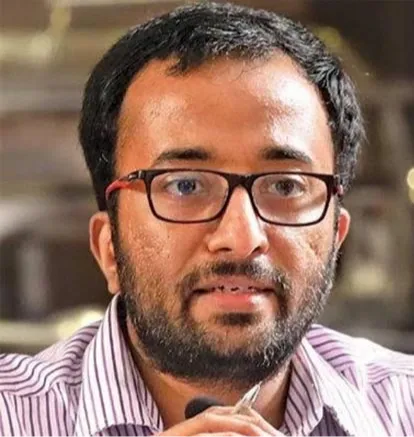-
CENTRES
Progammes & Centres
Location

The fast-growing populations in the world’s emerging economies are increasingly demanding world-class health services. This is in the backdrop of old health challenges which remain, significant lifestyle changes, and new vulnerabilities arising from these changes. Addressing their aspirations will thus require new models of delivery, new partnerships, and novel financing mechanisms. How can communities become co-creators and co-providers of health services, instead of being passive recipients of care? What models have emerged from policy experimentation in emerging economies that are worth investing in and spreading? And how can the politics of developing countries be re-ordered around the provision of basic health? These are some questions discussed by speakers at the panel, Accessible Health: Towards an Inclusive Human Capital Agenda at the Raisina Dialogue 2019.
Providing financial risk protection is a major component of the health-related Sustainable Development Goal (Goal 3.3). This is critical as countries are grappling with the double burden of disease, and families are falling below the poverty line due to medical expenses. When governments do not invest enough in healthcare, households end up paying a significant amount of their annual income on medical treatment. It was found that the percentage of Indian households that slipped to poverty due to out-of-pocket health expenditure was seven percent of the total households in 2014 - a massive number. In India’s case, healthcare has become a topic of discussion in the highest offices of the country—something that has happened only once before during the launch of National Rural Health Mission (NRHM) in 2005.
In the context of the rollout of the Ayushman Bharat initiative— aimed at consolidating and taking forward the gains from the previous decade and which can be called the world’s most ambitious healthcare programme right now—the ethics of access provided an interesting starting point. After all, the objective of Universal Health Coverage is rendered meaningless without an egalitarian perspective. From a public health vantage point, everyone in society deserves to be equally protected and should have access to medical care at any time it is needed without causing financial distress.
This is exactly what Ayushman Bharat is striving to achieve through its two-pronged approach. The primary-level provisioning will dramatically improve with the initiative’s Health and Wellness Centres component. Furthermore, the injection of INR 5 lakh of purchasing power to every poor household in the countryside will trigger a no-frills, high-quality private sector moving closer to the rural populations, which are currently highly underserved. For these reasons, PMJAY, the insurance arm of the Ayushman Bharat initiative, is considered a game changer and is expanding at a rapid pace.
Within a period of 11 weeks, approximately five lakh people have received benefits of PM-JAY and more than 18 lakh beneficiary e-cards have been issued. Improving beneficiary awareness is turning out to be crucial, as many of the intended beneficiaries are still unaware of the scheme However, with a massive—and expanding—network of both public and private empaneled hospitals across the country, the number of patients accessing the scheme is steadily increasing. As the scheme steadies, capacity-building and grievance management are emerging as high-focus areas within the overall PM-JAY implementation.
Kenya’s experience has shown that many of the large schemes, while being populist, do not exactly reflect the ground-level needs of the people. Many diseases like TB and Malaria do not get the policy attention they deserve, despite killing a large number of people every year. Experience from Mozambique also shows that despite the political focus on free universal health care from the time of independence in 1975, and considerable external assistance, the required infrastructural facilities and human resources do not exist in the areas which need them the most. Health systems where modern as well as traditional treatment options exist side-byside throw-up an additional challenge for policymaker. The ground reality is similar in many pockets of India as well, where systemic under-reporting affects the public interest and the number of resources committed to fight many communicable diseases.
Economic growth in India is driven by low-skilled manufacturing but high skilled areas of the economy. Investing in human capital is important to sustain this growth. There is a large body of evidence which shows that the health and nutrition of mothers and newborn babies influence the cognitive abilities of children. There is also a direct link between health, nutrition, and productivity. In India, nine million people enter the labour force every year – about half of this number were stunted during childhood.
While most of the policy conversations remain around curative care, a public health agenda, focusing on prevention and promotion should provide the foundation for the country’s health systems.
Global experience shows that even with insurance schemes focusing on secondary and tertiary curative care, getting information on the health initiative to reach the target communities is a major determinant of the success in improving access. In India, the biggest challenge in ensuring uptake of various health schemes other than ensuring reliable funding support is creating greater awareness amongst people. With this aim, tapping into cutting-edge technology to expand comprehensive primary healthcare needs to become a core priority, along with expanding rural infrastructure.
The views expressed above belong to the author(s). ORF research and analyses now available on Telegram! Click here to access our curated content — blogs, longforms and interviews.

Oommen C. Kurian is Senior Fellow and Head of Health Initiative at ORF. He studies Indias health sector reforms within the broad context of the ...
Read More +